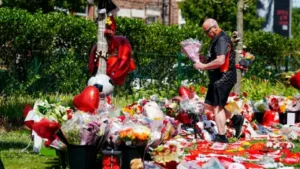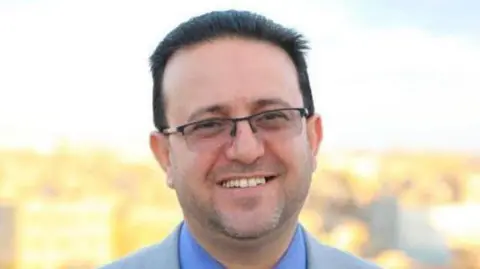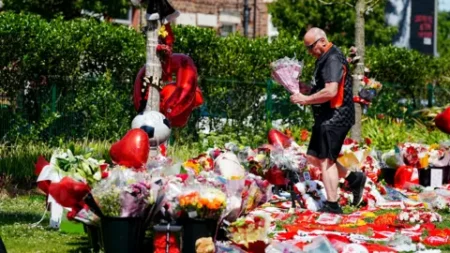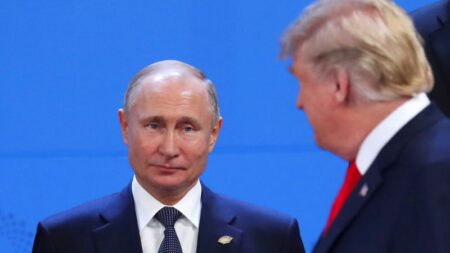The recent violence in the Gaza Strip has taken a devastating toll, exemplified by the tragic loss of Dr. Marwan Sultan, the director of the Indonesian Hospital in the region. According to reports from a relative, Dr. Sultan was killed in an Israeli airstrike at his home in Gaza City. The bombardment took place on Wednesday, claiming not only his life but also the lives of several members of his family, including his wife, daughters, and son-in-law. This incident has raised significant concerns about the safety of medical personnel and civilians caught in the crossfire of ongoing conflict.
Dr. Sultan’s death is a poignant reminder of the human cost of the violence that has engulfed Gaza. He was a respected figure in the medical community, known for his dedication and compassion in providing care to those in need. The Hamas-run civil defense agency confirmed that the airstrike occurred in the southwestern Tal al-Hawa area of Gaza City, where Dr. Sultan and his family were residing at the time. The Israeli military has stated that the strike was aimed at targeting a “key terrorist” associated with Hamas, although they are reviewing claims regarding civilian casualties resulting from the strike.
In addition to Dr. Sultan’s harrowing death, reports indicate that the violence has resulted in numerous casualties across the region. Just hours before Dr. Sultan’s killing, at least five individuals were reported dead and several others injured in an airstrike on the al-Mawasi area, which was designated as a “safe zone” by the Israeli military. The ongoing military campaign, described by the UN as targeting “terrorist infrastructure sites,” has left many questioning the boundaries of military engagement in densely populated urban areas, where civilian lives are frequently endangered.
One family member, Ahmed Al-Sultan, recounted the horror of the airstrike, recalling how he heard the explosion and rushed to the apartment, only to find Dr. Sultan and his family members unresponsive. The impact of this loss has extended throughout Gaza, prompting the health ministry to condemn the attack as a “heinous crime against our medical cadres.” They emphasized that Dr. Sultan’s contribution to healthcare during the brutal military offensives throughout the years had made him a symbol of resilience and dedication.
The humanitarian situation in Gaza remains dire, with reports indicating that no hospitals are currently functioning in the northern governorate, as confirmed by the UN. The health ministry has accused the Israeli military of systematically targeting medical and humanitarian teams, creating a crisis that has only compounded the suffering of the civilian population. The Israel Defense Forces (IDF), in response, have expressed regret over civilian casualties while maintaining that Hamas employs civilian infrastructure for military purposes, thereby complicating the engagement rules.
Beyond the tragedy of targeted strikes, the sheer scale of human suffering in Gaza is staggering. Recent reports indicate that in just the 24 hours leading up to Wednesday, at least 139 individuals were killed, with many of them being children. In one instance in the al-Mawasi area, individuals had sought refuge in what they believed were safe conditions only to become victims of an airstrike. Eyewitnesses described hearing a deafening explosion in the early hours of the morning, resulting in a scene of chaos, destruction, and anguish as families lost loved ones.
As these harrowing events continue to unfold, the international community grapples with the gravity of the ongoing violence. Humanitarian organizations are raising alarms about the psychological impact on children, many of whom express a desire for death just to be reunited with their deceased parents. Conditions in Gaza have worsened due to electricity shortages and inadequate access to food and water, exacerbated by relentless bombardments.
Amid this turmoil, the plight of families caught in these cycles of violence is central to the discourse surrounding the Israel-Gaza conflict. The testimonies from survivors and eyewitness accounts highlight the desperate need for a ceasefire and renewed efforts for lasting peace. The cycle of violence has drawn international concern, and voices from the region are calling for immediate action to halt the bloodshed and alleviate the humanitarian crisis. The events surrounding Dr. Sultan’s death encapsulate a broader tragedy that transcends borders and speaks to the urgent need for dialogue and resolution in the pursuit of peace in one of the world’s most volatile regions.











